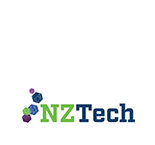Importing, exporting and moving goods around Aotearoa and the world comes with a long paper trail. Literally. Up to twenty different entities require 10–20 paper documents. With much of the information each entity needs being the same.
The reliance on paper documentation, emails, faxes and old legacy computer systems is hampering the move to digital efficiency.
That is what we heard at our town hall last week with representatives from the supply chain and logistics sector.
What we also heard is that the “movers” are ready to get with the times and champion industry-led innovation.
COVID a key driver
COVID 19 exposed glaring gaps everywhere in society. The supply chain and logistics industry was no exception. Paper-based export documents go by air courier. As borders closed and travel was restricted, it wasn’t only difficult to get goods on a plane — it became difficult to get documents on a plane. Containers arrived 2–3 weeks before the documents got there.
At the same time some promising signals emerged. Some markets were willing to accept electronic documents. Our own government agencies rethought relationships and connections across the system. According to one town hall participant, eCommerce went up by 400% in Asia, by 90–140% in Australia.
COVID 19 provided an impetus for more market maturity. It highlighted the need for a more sophisticated supply chain. It opened up the opportunity to increase our presence in other markets.
So what’s the hold up?
From what we heard, the desire for digitisation is here. The benefit is clear. The thinking is well under way. Pockets of digital adoption and experimentation are happening here. We have a Digital Economy Partnership Agreement with Singapore and Chile. We have the people willing and able to innovate. Companies are eager to engage.
So, what’s stopping us? We heard the words “trust”, “legislation”, “harmonisation”, “standardisation” and “legacy systems”. It was also suggested that few government officials know what a digital economy looks like.
Legacy computer systems
Legacy computer systems exist across the industry and in government. Those who adopted computers early on are now struggling with old code, and old mainframes with bolt-ons. They are struggling to bring these systems into a more collaborative age. And finding it increasingly difficult to find the people to maintain these systems.
Trust
Harmonised systems and digital standards all contribute to trusted data sharing. How can data be shared freely and with confidence? How can we get buy-in from all points of the supply chain? This gets challenging where supply chains involve several steps, and even more so if crossing borders.
How can we get the show on the road?
This is a complex conversation in a complex space. We can’t do it justice in a blog. And we don’t have the expertise to do so. But we were heartened to hear hope and action in a number of areas.
As one participant suggested, technology is not the issue (well, maybe once the legacy systems are sorted). It’s the legal frameworks that support digital standards for trade. It’s the legal frameworks that support a unified export certification system (harmonised with international frameworks).
The UN Commission on International Trade Law, UN Food Agricultural Organisation and World Trade Organisation agreements have laid the groundwork for harmonising trade-related standards and traceability. They facilitate the criteria for tech reliability. They pave the way for internationally acceptable rules for digital commerce.
At the same time, it was suggested that trust frameworks across industry and the government can validate and facilitate trade.
There appears to be willingness amongst industry players since COVID 19 to work less in siloes. To work collectively. To continue researching ways to share data freely and with trust and confidence. To cluster their specialisms to look for opportunities to scale and work collaboratively.
It would be ideal if the government could do the same. It was said that data authenticity can only play out when there is a single touch point with the government that can facilitate across agencies.
As one participant said, “the removal of paper is utopia”. It appears the movers are eager to engage. Ready to accelerate. And primed to participate in initiatives that enhance the movement of goods.
But at the end of the day, if we want to get the movers to move with the times, they need a destination. A clear vision and a clear articulation of what a digital economy for Aotearoa looks like…
ACTIVITY SUMMARY
- The logistics and supply chain town hall was a hugely productive forum for bringing together players from across the sector (exporters, transporters, banks, insurance companies, government agencies). We plan to work more with the sector to facilitate more discussions.
- We’re continuing our work on the report and recommendations to the new Minister for Digital Economy and Communications on trust in automated decision-making. The full Council will be going through the report this week.
- Our research partners at Te Kotahi Research Institute presented to us last week on the insights they have gathered on trust and automated decision-making through a Māori lens. We will incorporate these learnings into our final report.
- This week several of our members, along with Anna Brown from Toi Āria, will be presenting in the World Economic Forum webinar ‘Reimagining Regulation for the Age of AI’. We will present insights from our research and outline the participatory design approach we took to this work.






